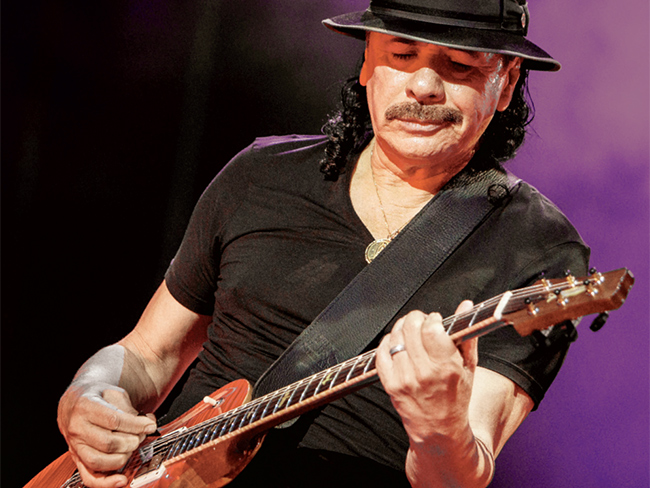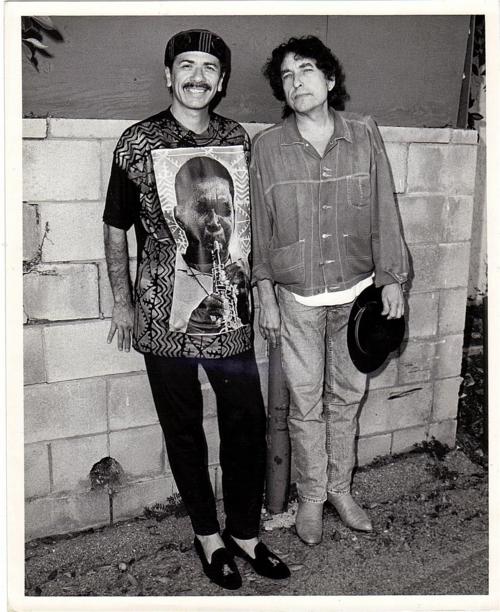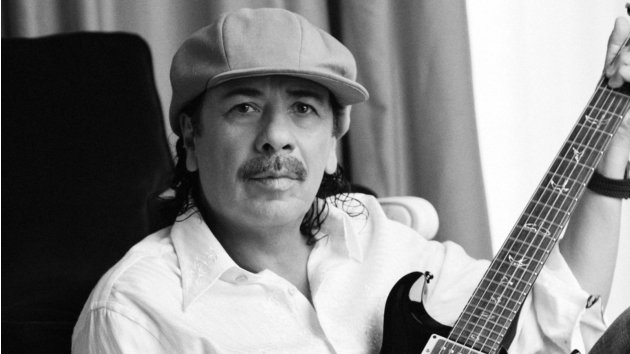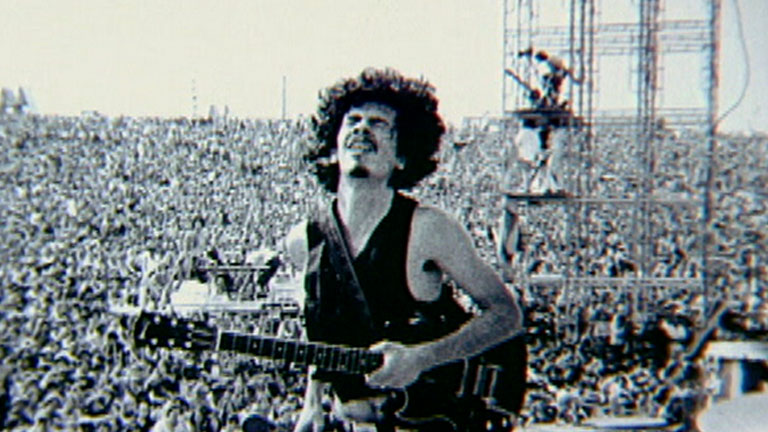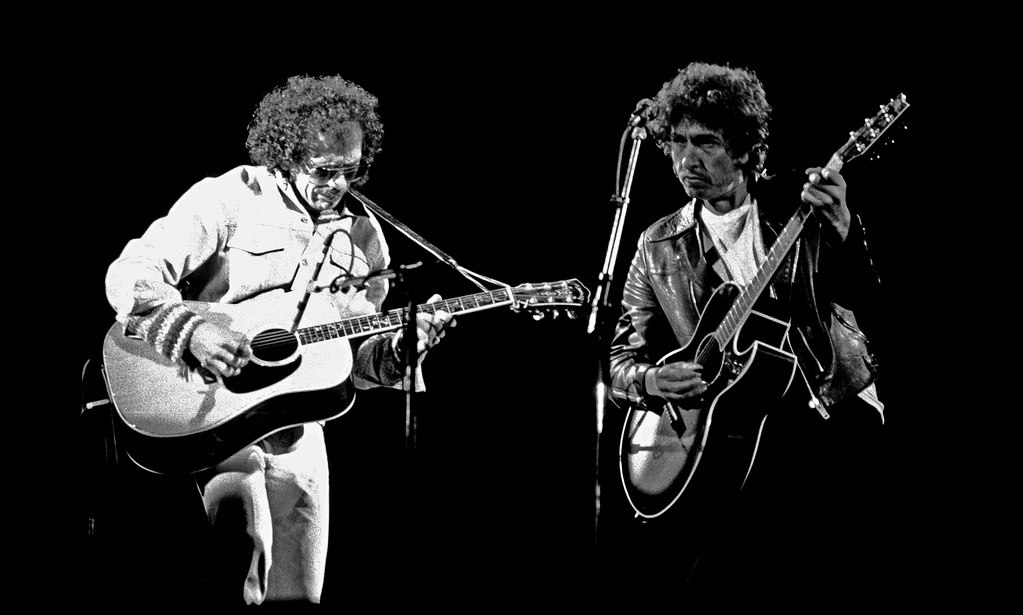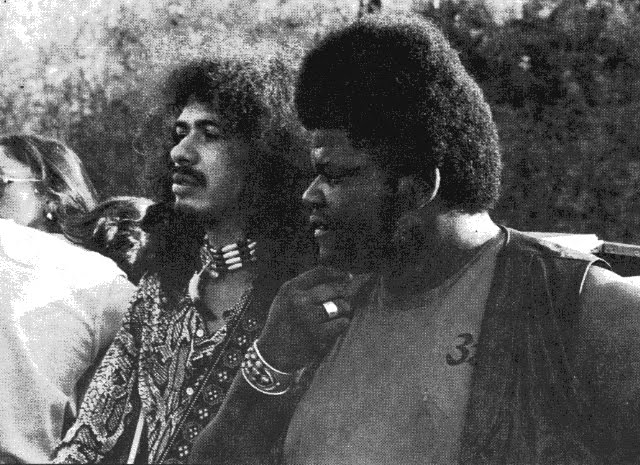here are some of my favorite quotes and passages from Carlos Santana’s autobiography,
1 – “I used to be a very intense, compulsive person. I was always angry because my ego had convinced me that I was hopeless and worthless. I was playing hide-and-seek with myself. I remember a long time ago in Mexico someone asked me, “What are you most afraid of?” I told him, “I’m afraid of disappointing God.” Now I realize there’s no way I could disappoint God because this isn’t an issue to Him. It’s only an issue for my ego. What is an ego except something that thinks it’s separate from God? When I could understand that, I was like a snake shedding its skin. The old skin was guilt, judgment, condemnation, and fear. The new skin is beauty, elegance, grace, and dignity. More and more I’m learning to bless my contradictions and my fears and transform them. More and more I want to use my guitar and my music to invite people to recognize the divinity and light that is in their DNA.”
2- “I think one of the truest things I ever heard was Archbishop Desmond Tutu’s observation that we are all a work in progress, a masterpiece of joy still being created.”
3- “People know me as much for being a spiritual seeker as for my music. “Cosmic Carlos,” “Crazy Carlos” – I know what people say, and I have no problem with that. I’m the guy who talks about light and luminosity and always wears dead people on his shirts and jackets. Many people put people on their clothes. In my eyes John Coltrane, Bob Marley, Billie Holliday, Miles Davis – they are inspirers and igniters, finders of blessings and miracles. They are all immortals, still alive in an eternal here and now. And they make me look good. Try them on for yourself. “Cosmic” to me means being connected. From the place where I am blessed to be, I have been able to see how we’re all connected. When people call me cosmic or crazy I take it as a compliment and say, “Well – behold. My craziness is working. How’s your sanity doing?”
4- “I think the cycle of violence has to stop, and it’s up to each of us to do all we can to stop it. So much violence comes from fear and ignorance, and from that word I truly hate: “macho.” Because macho is fear – fear of being too “feminine” and not being man enough, fear of being seen as weak. It can be like the worst virus, an infection that starts in the family and goes out into the street and spreads through the world. Violence has to be stopped where it starts – at home.”
5- “Bob Marley was the heart and soul and conscience of the ‘70s. No question about it. I think he is the most important artist of the ‘70s. When everything was going disco or discord, he was the glue that made music meaningful. His was music with a purpose, to spread the Rastafarian mission of oneness – “I and I” – One Love, which was no different from what Coltrane was saying with “A Love Supreme.” I don’t get tired of saying those two back to back – One Love, A Love Supreme. Bob Marley had a purpose, and his music had beauty and movement and sex and truth.”
6- “I did not go to the priest or anyone else. I went straight to the Virgin – that’s something I believe in to this day, that the relationship with one’s higher power should be a direct one. There are times when we all need a spiritual hug, when we need to feel comfort from fear and be reminded of the oneness we share with all that is around us. I also learned about the power of prayer from my mom, and that prayer is not a one-way thing. What I was looking for was a conversation. It was not the first or last time I would speak with the Virgin. In 2003 I was on tour, and the day we played Mexico City there was a press conference. They asked me what I had been up to while being back home in Mexico. I told them, “Yesterday I was in Autlan, where I was born, and I went to the chapel where I used to go with my mom when I was a baby. I kneeled down before this big picture of the Virgen of Guadalupe and said thank you. Then I heard a voice that said, “I’m really proud of you.” There was a long pause. “Wait a minute: the Virgin of Guadalupe talked to you?” they asked. I think they were as surprised that I had gone into a Church as they were that I had heard back from the Virgin. I answered their question with a question of my own: “What kind of relationship do you have with God if you only talk and God don’t talk back?”
7- “I think one of the most idiotic questions anyone can ask is whether white people can play the blues. If you need to know, go listen to Stevie Ray Vaughan at his peak. Playing blues is not about what part of town you come from or what country. No one race owns it. Some people might think they do, but they don’t. I can hear blues in the music of Ravi Shankar and Ali Akbar Khan. Flamenco players have got the blues. The Moors singing to Allah have got the blues. The Hebrew people in their prayers have got the blues. The blues is like chicken soup – it wasn’t invented in America, and we don’t own the recipe.”
8- “I was really shy. I had no confidence when I got to be alone with a girl because I’ve never been a bullshitter or a hunter. One thing I know I didn’t get from my dad is the ability to hunt and charm women. That “Hey, baby” stuff was never my thing. To me, it just sounds corny, like picking up a guitar that’s out of tune. That’s just not my personality, even when I was with my first wife, Deborah, or Cindy or any of the other ladies. I prefer to have a real conversation – that’s just me.”
9- “If you believe in gravity and you drop something a hundred times, a hundred times it’s going to fall. But if you believe in grace as strongly as you believe in gravity, then a hundred times out of a hundred times you’re going to get a miracle. I loved the 60’s because it made me believe in the law of grace.”
10- “Santana played Jerusalem for the first time – the city where Jesus preached and ran into trouble. I remembered all the stories from the Bible about that city, and there really was something special about it. I remember waking up in the morning and seeing the sun coming out, just as it’s done for thousands of years, and it’s so beautiful. Then you see the twilight, and you can’t help but wonder why people fight so much here. I went walking around, and I realized that on the one hand Jerusalem is a very, very sacred and historic place, but on the other hand it’s like so many other cities in other parts of the world – vendors and marketplaces and people hustling each other, just trying to get by. Parts of that city are about as pristine and spiritual as the backseat of a New York City taxicab. I was thinking it really doesn’t matter where you are when it comes to the invisible realm – it’s what you bring to that place in your heart that can make it divine and holy.”
11- “The mind is a creature of labeling and encapsulating and fitting things into categories. But I was hearing music that was begging the soul to tell the mind to shut the hell up, turn up the volume, and not worry about what to call anything.”
“For me the best thing about being connected to Woodstock is that most of our band is still around to talk about it. We’re all alive and vibrant. Most of all, we still stand for the same things that Woodstock represented – consciousness revolution coated with peace and love and music. The audience was filled with people who had a deep, emotional investment in making change happen. It wasn’t just people wanting to smoke a joint or get laid – although many did both – and it wasn’t about wanting to sell T-shirts or plastic flowers. The original Woodstock wasn’t about selling anything. It wasn’t regimented or organized enough for that to happen. In fact that’s the beauty of it, and that’s why people are still talking about it. It came together naturally and was about music and peace to show the system that there were a lot of freaks out there who wanted their voices to be heard. They wanted the freedom to be who they were, and they wanted the war to stop: “Hell no, we won’t go!” We were saying that the war wasn’t over there in Vietnam. It was right here at home, between the government and the hippies at Woodstock – between the system and the people who have no voice. In ’69, we had a generation with an agenda, and the groups that played Woodstock helped get that agenda out into the world and gave people a voice. But the one problem back then was that there was no middle ground. And that was not good either. Some people were saying if you weren’t supporting everything America was doing, you were not being patriotic. Meanwhile a lot of hippies were making rules of their own and disparaging servicemen who were coming back home injured or without legs – calling them baby killers. Now it seems that we are back to that same thing – people judging people and making decisions without knowing enough – and there’s still no middle ground. The true hippies thought for themselves and helped bring about a change that we needed in America. There are not enough hippies right now, in my estimation. And besides I don’t care who you think you are – part of the system or a hippie – you have to learn to think differently from the crowd. Think for yourself and work for a better world. Don’t do anything with violence, but do make an extreme change to your own mentality. Question authority if it’s not divinely enlightened. Thomas Jefferson said it his own way – rebellion to tyrants is obedience to God. In that sense, both Jesus and Jefferson were downright hippies.”
12- “We should write it in big block letters: THE EGO IS NOT YOUR FRIEND. The ego likes doubt, and it will criticize and guilt-trip you to death. It will condemn and judge and draw you into a pit and then laugh at you… Even today I think Eastern philosophy is like a wise old uncle trying to help the Western mind, which can be enmeshed in adolescence, acting like a spoiled teenager, wanting to party, smelling like unwashed socks and stale beer.”
13- “Love is the unifying force of the universe; it’s what holds us together and brings us life. Love is the breath that flows through us all and connects us. Devotion is the commitment to living with spiritual priorities, which was the direction I was already going in when I started to move away from drugs and toward the idea of inner work.”
14- “I want to talk about Africa. I’ve only been there a few times, but each time I’ve gone the first thing my whole body is thirsty for is rhythms – to hear the music and see the dancers. It’s about connections between us and where we came from. To this day, African music is my number one hunger. I can never get enough of the rhythms, the melodies, the second melodies, the colors, the way the music can suddenly change my mood from light and joyful to somber. If people ask me, I tell them that we play 99.9 percent African music. That’s what Santana does. I wish there was a school that just taught one thing – how to have some humility and recognize that Africa is important and necessary to the world – and not just because of its music either. I think I’ve surprised a few African bands because I was able to hang with the music – there’s too much groove not to!”
15- “I like music with a message, music that I call brutally positive.”
16- “If you see a musician up there playing in Santana, he’s not there just because he knows the songs. It’s because of trust. I trust each one of them to be genuine and to have a deep respect for three things that they will never drop: the tempo, the feel, and the groove. We talk about that all the time. The tempo and feel have to be right for each song, and the groove – the groove is king.”
17- “I started to find my own way of talking about what I was hearing in the music. I was learning that especially with new people in the band I needed to be as respectful as possible but also as clear as possible about what I wanted, like: “The chord I’m thinking feels like this – you have to picture a sunset, when the clouds are painted red…no, that chord is the middle of the day. Try this other chord. Okay, that’s like four in the afternoon. Can we get to six o’clock, right before the sun goes down?” To me, music has always been visual. I can see when there is a color or mood, or water or fire or a tear rolling down from an eye, or a smile. That’s the business of a musician: to make the chord or the rhythm or whatever “sound-match” a certain memory or emotion and connect to something real.”
18- “To this day I detest anyone who tries to indoctrinate others into hating people because they are different and trying to get ahead and uplift themselves. I detest it as much as I did when some Mexicans were trying to get me to hate gringos. That’s what they tried to tell me in Tijuana, and I didn’t buy into that lie either. We’re all people. The other stuff – like flags, borders, third world, first world – that’s an illusion. All this stuff keeps us stuck in the same place where we were ten thousand years ago: Neanderthals fighting over some damn hill.”
19- “Who you are going to be decides what you’re going to do, and what you’re going to do decides who you’re going to be.”
20- “The greatest support anyone can give is to remind people that they’re significant and that they have value, that they’re a beam of light no matter what they have or don’t have. Real philanthropy isn’t about pushing money – it’s about moving light, and it doesn’t matter how many zeros you have to the right of your bank account.”
21- “I’ve been on this beautiful planet since July 20, 1947, and I have never, ever prayer or asked anything from Satan, Lucifer, devils, or any other dark force. I believe in angels, archangels, thought adjusters, sentient beings, benevolent spirits, and family members who have passed on are still here to guide me and protect me. I still read and meditate and do what I can to strengthen my faith muscles, just as going to the gym develops my other muscles. Some people might think that once you start discovering godly things and go down the path to enlightenment you have to lose your appetite for the world, and that’s just not true. That’s not how I have lived my life, and that’s not going to change.”
22- “I’d love to share something with you: I really get high on gratitude. Gratitude is one of the highest things that a human being can aspire to, because when you’re grateful you go beyond the halo and the horns. Halo and horns are just words for energy with the guilt. Angels and demons – they give you a standing ovation when you do your best to be grateful. I invite you this second, this moment to embrace unconditional love. Unconditional love is a love that is greater than your issues, greater than your luggage and baggage and illusions. Love makes you and me necessary as opposed to unnecessary. Love does away with distance and separation. Love turns all the flags of the world into a river of colors. Love is the light that is inside all of us, everyone. I salute the light that you are and that is inside your heart. I salute you.”
23- “I have a good habit of using a bad memory, so I forget stupid shit that happened and I will give a person another chance.”
24- “It should be clear: it’s not about music or spirituality. For me, music is part of being spiritual, an extension of my aspirations in this lifetime. If I wake up only to be a musician, or only to go to work, or only to do this or that other thing, then I would be missing the big picture. But if I wake up and my first thought is that I am here to be a better person, then the musician in me is just going to come out naturally. Music is the amalgamation of sound and intention and emotion and wisdom. To this day my chant is the same – “I am that I am. I am the light” – and that’s what I chant if I feel myself scattered, pulling away from my core, if I feel the Universal Tone separating into different notes. I need all that I am to hit that one note and be in tune. Five things go into that one note: soul, heart, mind, body, and cojones.”
25- “Laughter can be a very spiritual thing. If you ask me, I think getting in a good, gut-busting round of laughter is worth more than a month of meditating. It can take you away from yourself, help you let go of a lot of layers of fear and anger. If you get someone laughing, really laughing, you’re dealing with Christ consciousness and Buddha consciousness and divine illumination. Laughter is lightness, and if you don’t have a sense of humor things can get dark really quick.”
26- “I love the idea of explaining spiritual discipline in a street kind of language so people don’t have to say, “What the hell is he talking about?” I like the idea of spreading a spiritual virus that instead of making people sick makes them totally alive. The virus can spread from one person to another until they and their neighbors see a decrease in violence in their community.”
27- “There ain’t nobody who’s going to put you down more than you. But there’s a difference between being brutally honest and just being brutal.”
28- “If you can only remember one thing today, remember this: you are significant, you are meaningful, and you matter. The best is not ahead. The best is right now. Enjoy it, don’t hurt anyone, and live with supreme integrity.”
[wp_ad_camp_2]

